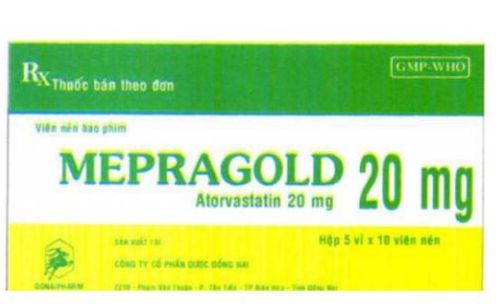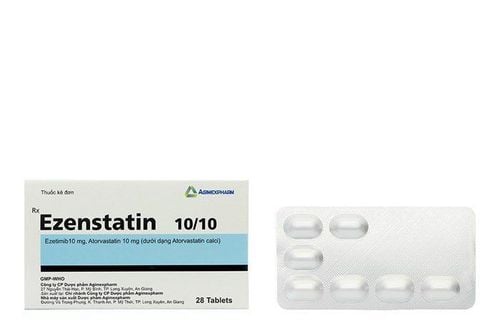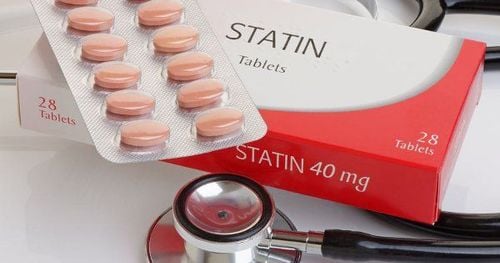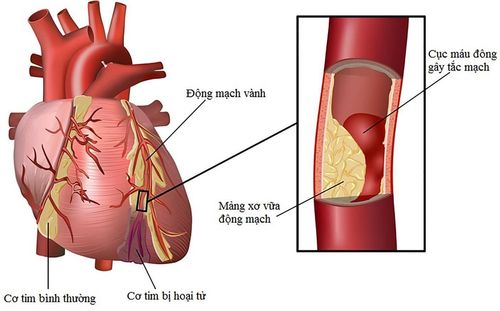This is an automatically translated article.
The article is professionally consulted by BSCK II Nguyen Quoc Viet - Department of Medical Examination & Internal Medicine - Vinmec Danang International General Hospital.
Increased blood cholesterol will adversely affect the organs, especially the cardiovascular system. The factors that affect cholesterol are diet, exercise, weight, lifestyle and other fixed factors.
1. What is blood cholesterol?
Blood cholesterol is a fat that is always present in blood cells. Cholesterol in general is always present in all cell types of the body and is an important component for the structure of cell membranes, a number of hormones (hormones) and plays many other important functions. of body.However, having too much cholesterol in the blood is a major risk factor for coronary heart disease (a cause of acute heart attack), stroke (cerebrovascular accident) and peripheral vascular disease. .
Cholesterol can come from two sources: From the body's synthesis and from the food you eat. The liver and some other cells of the body make up about 75% of blood cholesterol, the remaining 25% is provided by food.
2. “bad” cholesterol and “good” cholesterol
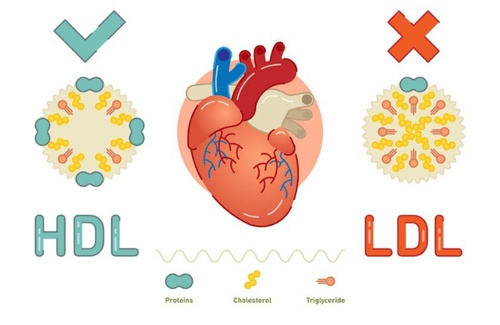
Low-Density Lipoprotein (LDL) : Specialized in transporting most of the cholesterol in the body's blood. When there is too much LDL in the blood, the artery walls will deposit fat, causing atherosclerosis, which is the cause of dangerous cardiovascular diseases. Therefore, LDL is considered "bad" cholesterol, which needs to be reduced. High-Density Lipoprotein (HDL): In contrast to LDL, HDL is responsible for removing cholesterol from the blood and preventing it from entering the artery walls, thereby limiting the formation of atheroma. Thus, HDL is considered "good" cholesterol, which needs to be increased. There are many different factors that affect the levels of both bad and good cholesterol.
3. Factors affecting cholesterol
3.1. Dietary animal fat, fast food, carbonated water or all foods that contain too much energy will increase LDL levels and raise total cholesterol. Diet is the main cause of atherosclerosis, myocardial infarction, cerebrovascular accident ... Therefore, to prevent "bad" cholesterol from rising, a reasonable diet should be built. as follows:
Amount of cholesterol ingested: Do not exceed 300mg/day. Use vegetable oil and animal fat in a balanced ratio, suitable for each age group. Eliminate fatty foods, avoid eating animal organs. Protein: Should account for about 12-15% of the total energy of the entire diet, including beef, pork loin, lean chicken, beans. Fish is a good food for people with dyslipidemia and high cholesterol in the blood. Eat a mix of plant and animal protein. Carbohydrates: Make up 60-70% of the total energy of the diet. Limit eating too sweet, maximum amount of sugar in the day 10-20g. Use cereal in combination with potatoes. Supplement vitamins, minerals, trace elements, fiber, mainly from green vegetables, fruits, rice. 3.2. Overweight, obesity Body mass index (BMI) is used to determine whether a person's body is thin, fat or fit. The recommended BMI is between 18.5 and 22.9. BMI of 23 or more is considered overweight, easily leading to high cholesterol in the blood.
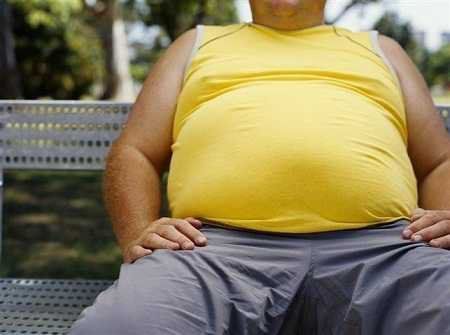
3.3. Lack of physical activity Maintaining a regular exercise regimen will increase HDL and reduce LDL.
3.4. Heredity Several genes run in families that govern how cholesterol is digested and processed. This is what affects the cholesterol levels in the blood. There are a number of inherited conditions for high cholesterol.
3.5. Age and sex Like genetics, age and sex are factors that affect cholesterol that cannot be changed or influenced. Blood cholesterol in both sexes usually begins to rise at age 20. Most pre-menopausal women will have lower cholesterol levels than men of the same age. After menopause, LDL levels tend to increase, and cardiovascular risk increases accordingly.
3.6. Smoking lowers HDL Bad habits like smoking, alcohol, and stimulants are the most common cholesterol-affecting factors that can be avoided. Moreover, quitting smoking and alcohol also helps the body to have better health and eliminates one of the biggest risk factors for cardiovascular disease.
To prevent high blood cholesterol, from the age of 20, it is recommended to perform a blood fat test once a year and from the age of 50 should check every 6 months for total cholesterol, triglycerides, LDL and HDL. Based on the test, the doctor can advise to adjust the diet, increase physical activity or treat with specific drugs if necessary.
Vinmec International General Hospital offers customers the package of Outpatient Diabetes Management - Hyperlipidemia with the aim of assisting customers in checking cholesterol as well as glucose tolerance disorders or disorders. fasting blood sugar disorder....
Please dial HOTLINE for more information or register for an appointment HERE. Download MyVinmec app to make appointments faster and to manage your bookings easily.






